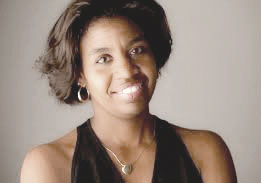
*
I remember years ago meeting with January O’Neil, and the founder of the Mass. Poetry Festival, Mike Ansara, at the home of my friend Paul Stone in Cambridge. Paul Stone was the Creative Director of W.B. Mason, and I thought bringing someone experienced in advertising would be a good idea. I don’t know how much (or if anything) was taken from that seminal meeting, but there is no doubt that the Mass. Poetry Festival is on the tip of everyone’s tongue. Over the years many Somerville poets have been presenters at the festival, and this year is no exception. Offhand, I can think of Pulitzer Prize-winning poet Lloyd Schwartz and Somerville Poet Laureate Nicole Terez Dutton. I caught up with O’Neil, who is a professor of English at Salem State University, one of the many hats that she wears, and wears well. The festival will take place in Salem, Mass. from May 1 to May 3. For further details go to: http://masspoetry.org.
 Doug Holder: Can you give me a brief history of the Festival?
Doug Holder: Can you give me a brief history of the Festival?
January O’Neil: Co-founded by Michael Ansara, the first Massachusetts Poetry Festival ran in 2008 and took place again in 2009. Both were overwhelming successes and put Mass Poetry, the organization behind the festival, on the literary map.
DH: How has it evolved from its start in Lowell?
JO: In 2010, the festival took a year off and moved to Salem with Salem State University as a major sponsor. The Peabody Essex Museum and City of Salem have been valued supporters of the festival as well. In 2011, I came on board as a volunteer and eventually became its executive director in 2013. Laurin Macios came on board as program director, which gave Mass Poetry the next level of structure. Laurin has been the driving force behind some of our most recognizable programs: Student Day of Poetry, Poetry on the T, and the U35 Poetry Series, to name a few.
DH: Tell me about some of the headliners this year.
JO: Our exciting lineup of headliners includes: Rita Dove, Richard Blanco, Stephen Burt, Denise Duhamel, Nick Flynn, Regie Gibson, Jorie Graham, Edward Hirsch, Richard Hoffman, Adrian Matejka, Marge Piercy, and Rachel Wiley. In addition, we have nearly 100 poetry reading, workshops, panel discussions, group readings and visual arts sessions happening during the three-day event.
DH: Do you feel the festival is inclusive of the many different voices, camps, schools of poetry that we have out there?
JO: That is our goal. We have made a conscious effort to reach out to all parts of the state and into New England to bring new voices. Our programming committee received more than 170 proposals, so it was a difficult task narrowing the selection down to about 60. But I’m quite happy with the diversity and range of poets and poetic voices.
DH: Of all the memorable moments you must of had working for the festival, which stands out?
JO: There are too many to name. Working with the festival volunteers and seeing so many familiar faces year after year makes it all worthwhile.
DH: How can one get involved?
JO: Visit masspoetry.org and find out more about the festival, volunteering, and other ways to get involved.















Reader Comments